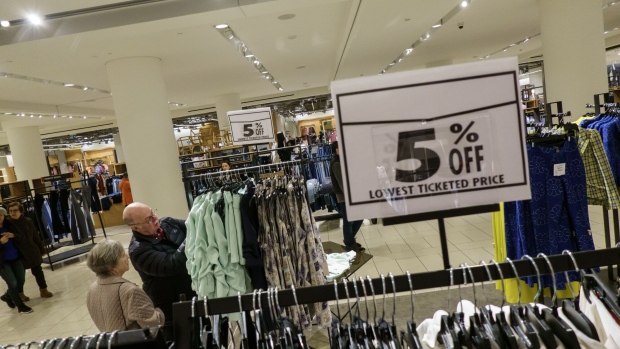May 19, 2023
Canada Retail Sales Rise Slightly in Sign of Consumer Slowdown
, Bloomberg News

(Bloomberg) -- Canadian consumers may be slowing down their spending on big purchases in the face of high borrowing costs.
Receipts for retailers increased a meager 0.2% in April, according to an advance estimate released on Friday by Statistics Canada. That follows a 1.4% drop in March, which was led by decreases at car dealers and gasoline stations, and a 0.2% decline in February.
The data show household spending may be softening, in line with expectations of an economic slowdown this year. While early estimates suggest sales rose slightly in April, it wasn’t enough offset two straight months of losses at the end of the first quarter. February and March saw the first back-to-back declines for retailers since April and May 2021, a period of Covid restrictions.
The retail numbers are another hint that Canadian households, which have high average levels of mortgage debt, are changing their behavior due to higher interest rates. About one-third of borrowers have seen their mortgage payments increase and new homebuyers are using their credit cards more to handle expenses, according to data released Thursday by the Bank of Canada.
Read More: Stressed Homeowners in Canada Are Turning to Credit Cards
Overall, retail sales were up 0.7% in the first three months of 2023 and up 1.2% in volume terms during that period.
The statistics agency didn’t provide details of the April number, which is based on responses from 38.2% of companies surveyed.
The decline in March sales matched the median estimate in a Bloomberg survey of economists. Excluding autos and parts, retail sales decreased 0.3%, versus expectations for a 0.8% decline. In volume terms, retail sales declined 1%.
In March, sales decreased in five of the nine subsectors, representing 55.5% of retail trade. Regionally, sales decreased in all provinces except British Columbia.
©2023 Bloomberg L.P.





